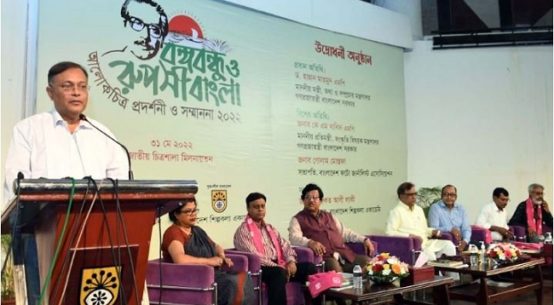
Saima Akhter, aged about 18, was once withdrawn from school while studying in the fourth grade as her family planned to marry her with an elderly person thinking about her “safety”.
But, child Saima protested and foiled the plan. Now, she is studying in college and wants to be self-reliant after completing her studies.
Not only Saima, the girls in the northern part of the country are becoming aware of their rights day by day. Now, they do protest if any unfair decision is given by their family. Some voluntary organizations are helping the girls in this regard due to the public welfare measures of the current government.
An organization named “Kishore Abhijan”, funded by UNICEF, has launched an education program for teenagers in Rangpur and the northern region on gender inequality, gender, child marriage, reproductive health and child labor along with some other issues.
So, teenagers like Saima in that area now know about their rights.
Kishore Abhijan, who is working to make women aware of their rights through the “Interactive Popular Theatre” method, wants to change the conventional mindset of society about gender.
Besides, various social issues of local level are being presented to the people through folk media such as popular folk tales, traditional songs, dances and dramas where society’s policy makers and administrative officials are used to present.
Center for Mass Education in Science of Rangpur carries out campaigns against the dowry system in front of common people through acting. They also highlight the necessity of women’s engagement in work.
According to Bangladesh Mahila Parishad (BMP), some 330 women were killed in Bangladesh in 2011 due to dowry-related violence, while 137 were killed in the previous year and 439 such incidents happened in 2013.
Mohammad Rashed of the Center for Mass Education in Science said in the interview that this campaign in the traditional way with everyone’s participation has become very useful and many sad incidents have been possible to avoid through this. Awareness has increased among the public about the health of women and children alongside prevention of violence against them, he added.
UNICEF says that the positive results of these activities are already available. The country’s six lakh youths, of which 60 percent are teenagers, have now learned first-hand about the appropriate age for marriage, the importance of education and family planning. It has also improved reproductive health.


